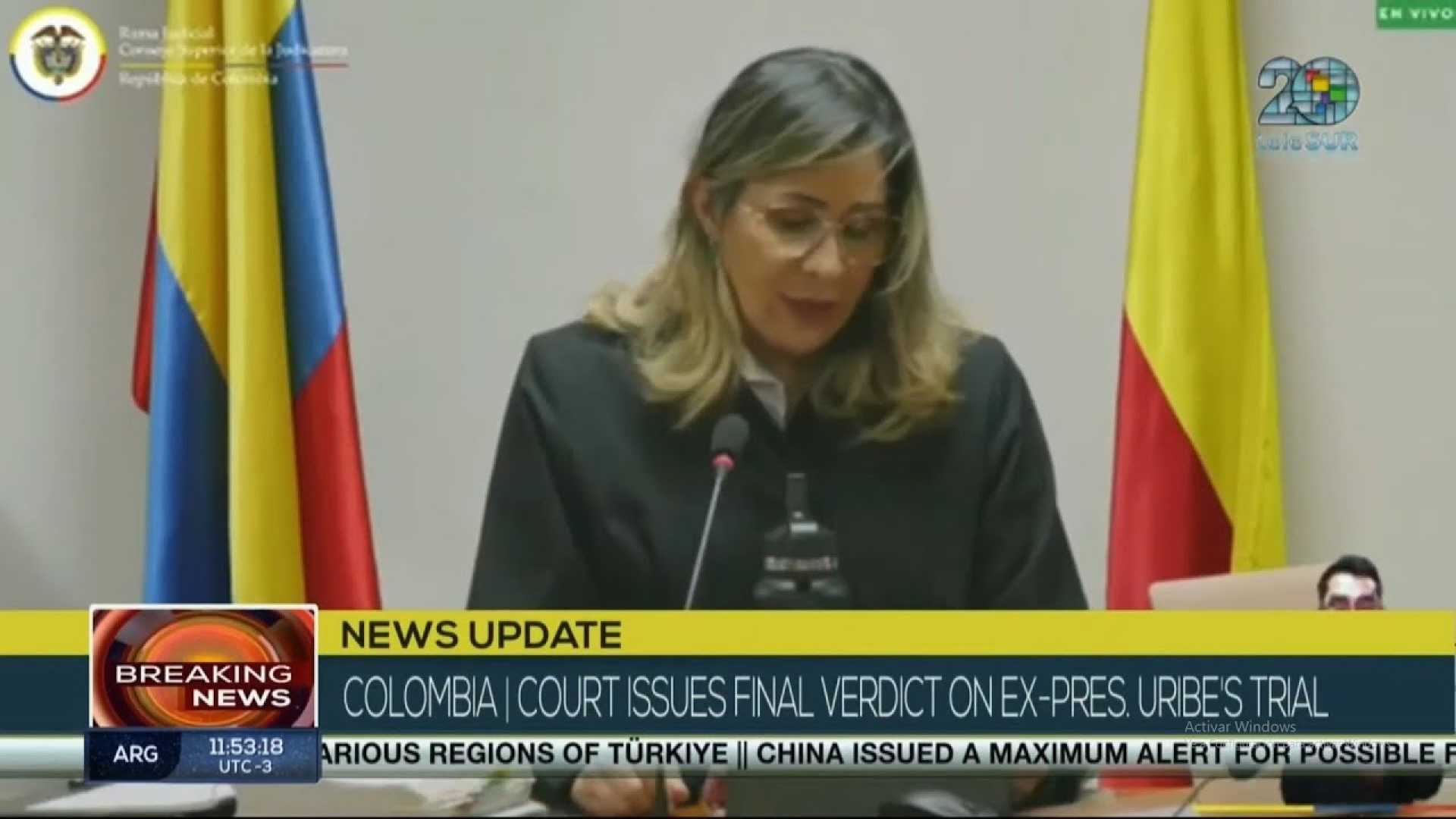Politics
Urgent Verdict Looms in Álvaro Uribe Trial After Years of Controversy

Bogotá, Colombia – The long-awaited verdict in the trial of former Colombian President Álvaro Uribe is set to be announced on Monday morning at 8:30 AM local time. The prosecutor’s office has accused the 73-year-old former leader of witness tampering and procedural fraud in a case that has captivated the nation since its inception in 2012 when Uribe was implicated in connections with paramilitary groups.
Judge Sandra Heredia presides over the historic trial, which marks the first time in Colombian history that a former president faces criminal charges in court. Addressing the courtroom, she emphasized the importance of safeguarding the justice process from external influences. “The eyes of the country and the world are upon this room,” she stated. “This trial has stirred emotions, but we must uphold the law without succumbing to pressure.”
Uribe, who has opted to attend virtually, has been a polarizing figure in Colombian politics, facing extensive scrutiny since accusations were made against him. During the lengthy hearing, which lasted nearly eight hours, Judge Heredia expressed frustration with the defense’s attempts to undermine the judicial process. “We are witnessing an example of magical realism, where characters are created to turn the perpetrator into the victim,” she remarked, implying that a guilty verdict seems imminent.
The court has examined specific instances of alleged bribery related to testimony from former paramilitaries. Judge Heredia noted that while one witness, Juan Guillermo Monsalve, initially claimed no benefits from Uribe’s team, he later changed his testimony regarding bribes, further complicating the defense’s position. The judge concluded that the case against Uribe centers not only on these allegations but also on potential witness intimidation and a broader context of corruption.
As the trial unfolds, reactions from political factions continue to develop. In Bogotá, a group gathered to celebrate what they perceive as an approaching condemnation of Uribe. María José Pizarro, a senator and presidential hopeful, indicated that “thousands of victims see a light of hope after years of impunity.” Meanwhile, Uribe’s allies have begun to criticize the judicial proceedings as politically motivated.
With Colombia’s political landscape at stake, Uribe’s fate may significantly influence upcoming elections in 2026. His defense team has argued that the judicial system is rife with bias against him. The long-standing grievances regarding human rights abuses during his administration further complicate the legal and political discourse surrounding his trial.
As the clock ticks down to the verdict, the nation holds its breath. The decision will not only impact Uribe’s legacy but also potentially shape the political narrative in Colombia for years to come.












